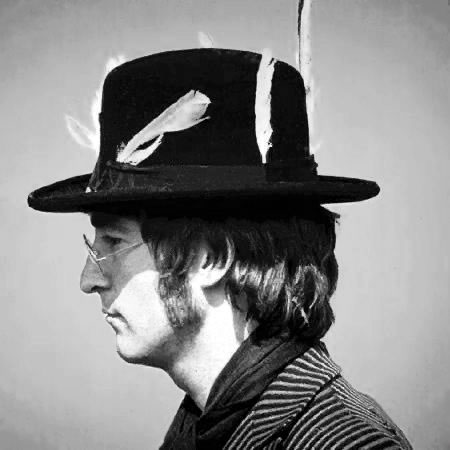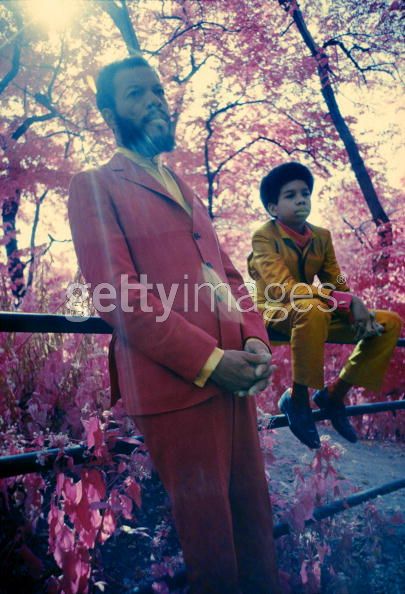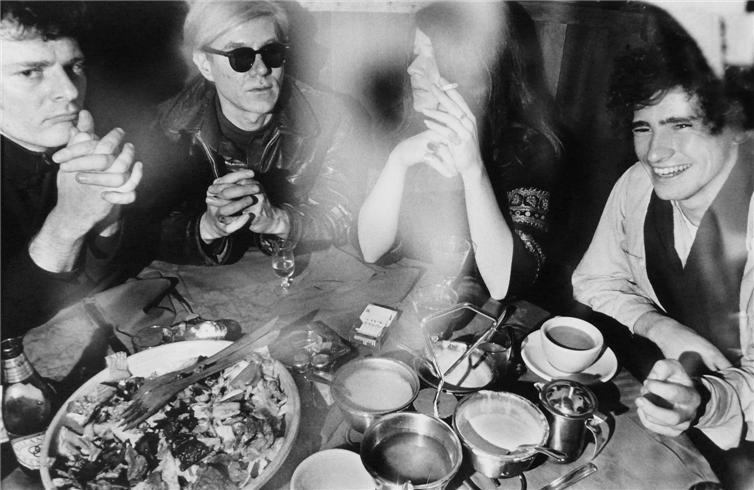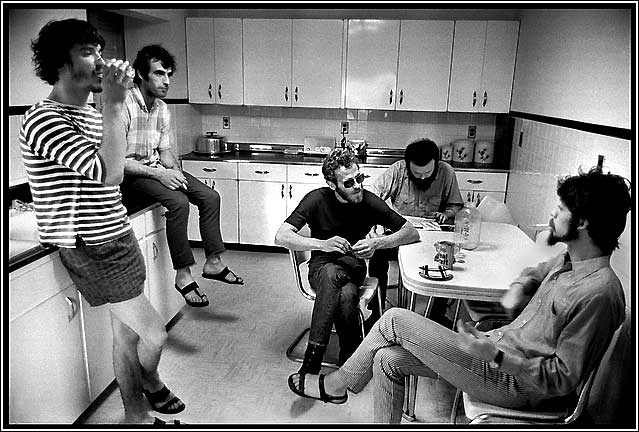In his Rolling Stone interview,John Lennon said that it was pain which had made the great artists what they were.
Memory, oh memory, what you do to me? /Today is all I really need to know. /Why do you have to haunt me when I thought I’d let you go?/I hear voices whispering through the cold and lonely hall./Memory, memory, release me from your spell./Why do you have to haunt me always?/Why do you have to haunt me when I thought you’d run away? ( John Lennon, Memories, unreleased)

"However, the self-importance and extremity of John and Yoko’s actions were of doubtful value, they were perhaps even counter-productive. A more measured protest, I suspect, would have been more effective. I think that, at that point and until his 1975 reunion with her, John and Yoko were so addicted to publicity and preaching that they did not consider that the wrong type of publicity could do damage to their causes."
What’s this all about? The song obviously has to do with psychological entrapment and freedom. Lennon feels that he’s haunted, under a spell. He is bewildered: “what you do to me?” The spell is purely within his own skull; it’s the flip side of the liberating magic he conjured in “#9 Dream”.
…But in the three years between 1966 and 1969,Elliott Landy photographed the Woodstock generation – and the Woodstock Festival itself, as the event’s official photographer — in all its funky glory. An exhibition of that work, The Spirit of a Generation, opened today in Montreal. He didn’t see the performers at Woodstock as rock stars — just musicians interacting with an audience that dreamed of creating a world of peace and harmony….
In terms of feeling, “Memory” is not so far from “the sadness of your soul”, the “spirit mind”, and the “echoed harmony of the cold and lonely naked human being,” of which he sang in “Tennessee”. More precisely, the reference to an “echo” in “Tennessee” evokes the echo of memories. Another connection between the two sets of lyrics is found in the connection Lennon made between pain and artistry.So both sets of lyrics deal with human pain and freedom. The “Tennessee” version focuses on the role of the artist in expressing even the bleakest reality so clearly that it shows a way forward for the future. In “Memory”, at least in the rough draft we have, which would not have been its final form, the emphasis is on the pain.
…Landy says he was never interested in interpreting the personalities of the musicians; what mattered was the music and how the musicians looked while they were playing it. “I photographed what I loved for the intrinsic beauty of the image, not for commercial or showing-a-famous-person value,” he says. But he became friends with some of them, especially Dylan. And his photos of The Band show them at ease with his camera and his presence, in contrast to the formal lineup that was used on the album Music from Big Pink.”I was always a photographer very connected to what I feel,” Landy says. “If I didn’t like the music, I didn’t take pictures.” And when the music turned commercial and musicians became stars, he walked away…. ( John Pohl )

"Lennon saw that without love our hold our on reality is flimsy: and he saw that this was true of himself. If he had been without love or any genuine experience of reality, he could not have understood this. But this does not mean that his insight was one he lived each mom
of his day. It was an ideal the truth of which he had comprehended at some level, even if the truth did not possess him so as to suffuse him."
That makes the music anomalous, as Lennon so often was. If the music of ”Memory” is deep, the lyrics are puzzling. What is the point of saying: “Today is all I need to know, so stop bothering me, memories?” The memories serve a purpose: they call me to be present before them.
And so it is with memories. There are very different sorts of memories; each centre has its own proper memory. The memories Lennon is speaking of here appear if they are associations in formatory apparatus, and that the painful feelings they evoke are negative emotions. Negative emotions, of course, are not sourced in the feeling centre, but are a sort of growth drawn from the perversion of instinctive centre. It is not enough to displace them for a time. They need to be seen, acknowledged, and their responsibility accepted, their suffering sacrificed, and its lessons learned. They need to be digested.Or so it would seem. Precisely this may be Lennon’s problem. Lennon wants to escape the pain: that is understandable. The pain is a providential arrangement to make us take action. But what action? Sometimes all you can do is to wait in the house until the animal, beast, the negative spirit, tires and goes away, like an unwanted guest. However, not in the case of memories and negative emotions. There we can take action. But to focus on our present concern, the pain Lennon speaks of is unconscious suffering.

" I can sympathise with Lennon’s sentiments: we can destroy ourselves through guilt. Guilt is identification with our faults and mistakes. It is not a way forward. Guilt only adds new problems and damages us further."
…”Landy was a photographic innovator, shooting Dylan, Ornette Coleman and others with colour infrared film. “I included several of these in the show as they are my favourites, since they express the ‘far-outness’ of the ’60s music experience,” he says.His career as a rock ‘n’ roll photographer was short, but it covered a significant period of cultural history and he was at the centre.”… ( Pohl )
Also, when tormented by painful memories, it often seems as if other people are inside. This subliminal sense that other people – and even our old and former selves– are inhabiting inside is a common and relatively mild form of possession. It is, if you like, possession by one’s own associations, and so Lennon’s reference to haunting is terribly accurate. A good example is found in Bernie Taupin’s lyrics for “The Boy in the Red Shoes” from Elton John’s Songs from the West Coast album: It’s all inside my head, the boy in the red shoes is dancing by my bed”. Although it’s usually what I call a mild form of possession, it’s none the less a serious matter for all that, because it’s a function of our lack of being.
Tennessee, O Tennessee, what you’ve shown to me:
Your words like water, pure and clear.
The sadness of your soul reveals the music of this sphere,
Conceal it behind your spirit mind, your poet’s love and feel.2
America, America, your heroes are alive.
Your faded men and glory will survive.
The madness of your soul supplies the all-consuming fire,
Beneath your spreaded chestnut lies A Streetcar Named Desire.
Tennessee, O Tennessee, your southern bell will ring.
Music travelled far from New Orleans.
Sling an arrowed mirror in the magic of your dreams
Reflect echoed harmony of the naked human being.
Reflect echoed harmony of the cold and lonely naked human being.
( John Lennon, Tennessee,from Peter van Schie “Between the Lines )
“Remember”. The music is a relentless advance of drums, bass and piano, with the simplest of melodies, as Lennon pounds this concise message: remember how many lies and fantasies you have fallen for, and remember today.

"Mentioning Imagine, I am struck by the directness of Lennon’s insights into our predicament and what we can do: “imagine” and “remember”. These are two simple, gentle, internal acts. Lennon was only ever at best in two minds about political revolution, although he was pragmatic enough to see the point in exerting pressure at key points. He was deep enough to see that the profound issues must be addressed first within, by such efforts as acknowledging reality, and then imagining that it could be different."
…Landy says he hoped that his focus on “the beauty of the image and the feeling of the movement which I tried to capture … will influence future generations of people who do art.” But, since editors often chose an inferior photograph to illustrate their magazine or album, the book that accompanies the exhibition, Woodstock Vision: The Spirit of a Generation, is “all me,” he says. “It’s my legacy.”
Can some things be true even if not the truth? Towards the very end of his short life, Lennon said that once in Japan he awoke, as it were , to realize that he had forgotten something for a very long time, and then he remembered what it was: he had forgotten himself. From there, Lennon goes on to sing of love, of looking at oneself, questioning one’s own identity, and of reality. Lennon may have been expressing, in a poetic way, that love and understanding go together. Only the lover can understand the beloved as a person. Indeed, he may be going further and saying that only the lover can ever understand ; Lennon may have come to this insight the next year in “Oh, My Love”, from the Imagine album.
Remember, when you were young,
How the hero was never hung,
Always got away.
Remember, how the man
Used to leave you empty handed,
Always, always let you down.
Did you ever change your mind about leaving it all behind?
Remember today, hey, hey.
And don’t feel sorry, (about) the way when it’s gone,
And don’t you worry about what you’ve done.
Just remember when you were small,
How people seemed so tall,
Always had their way.
Do you remember your ma and pa,
Just wishing movie stardom,
Always, always playing a part.
Did you ever feel so sad,
And the whole world was driving you mad?
Remember, remember, today
And don’t feel sorry, about the way it’s gone,
And don’t you worry about what you’ve done.
No, no, remember,
Remember, the fifth of November.
There is a very subtle nuance on the word “hero”, which is heard as a questioning of the very concept of heroism. Lennon may have meant to suggest that when we were young we were fed a diet of stories where the hero always came through. We grew up believing these fictions, and although now we can see that they are not true, that the good guys do not always win, we have never taken stock of the fact that we are living knee deep in the wreckage of false hopes. Remember, he is saying, remember and compare…..
a













 COMMENTS
COMMENTS




I could never like Yoko Ono; probably everything about that she had separated the Beatles.